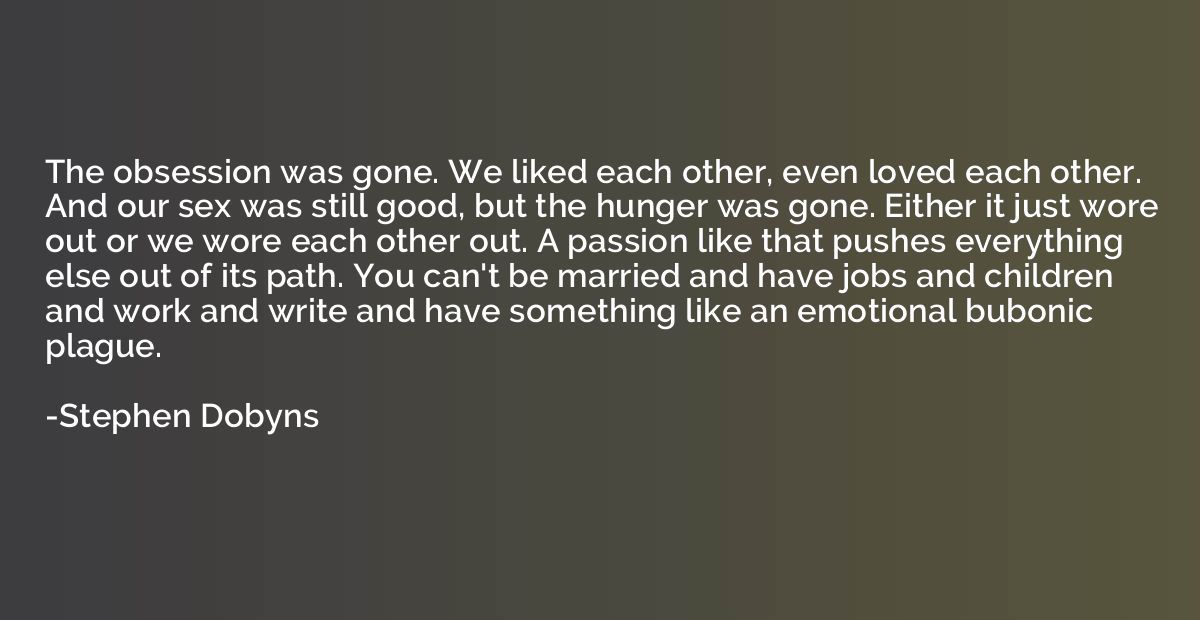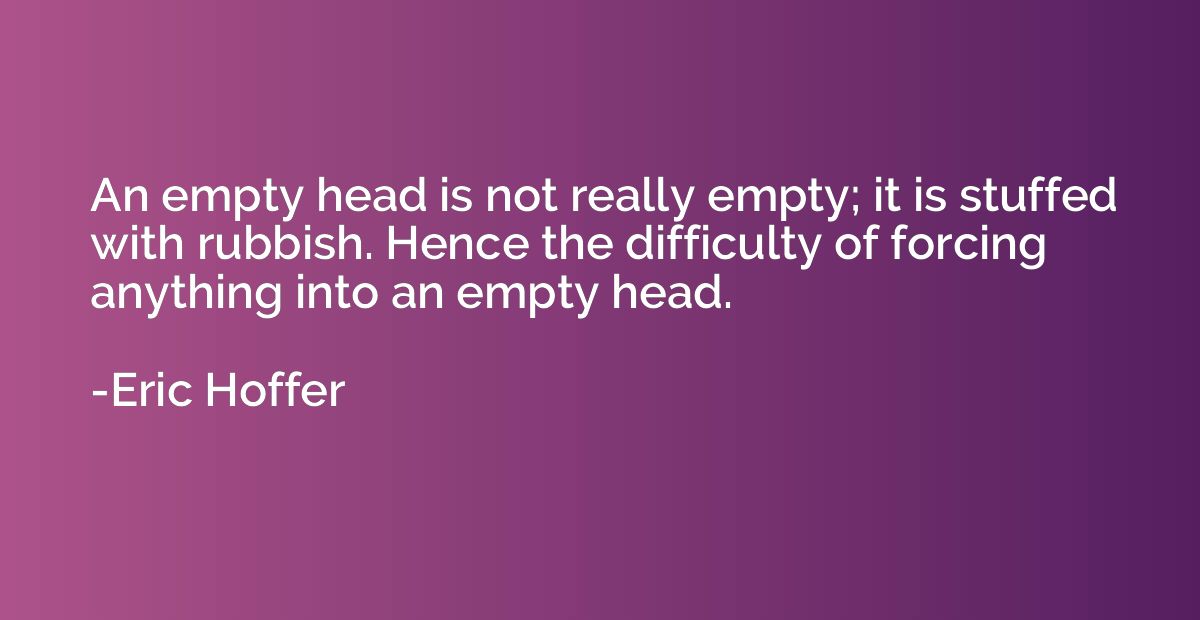Quote by Stephen Dobyns
The obsession was gone. We liked each other, even loved each other. And our sex was still good, but the hunger was gone. Either it just wore out or we wore each other out. A passion like that pushes everything else out of its path. You can't be married and have jobs and children and work and write and have something like an emotional bubonic plague.

Summary
This quote expresses the idea that the intensity of a passionate obsession can consume all other aspects of life, making it impossible to maintain a balanced existence. While the individuals in the relationship still loved each other, the intense desire and hunger they once felt had diminished over time. The demands of marriage, jobs, children, and other responsibilities had taken their toll, dampening their once fiery connection. It suggests that such an all-encompassing passion can be unsustainable in the long run and may hinder fulfillment in other areas of life.














